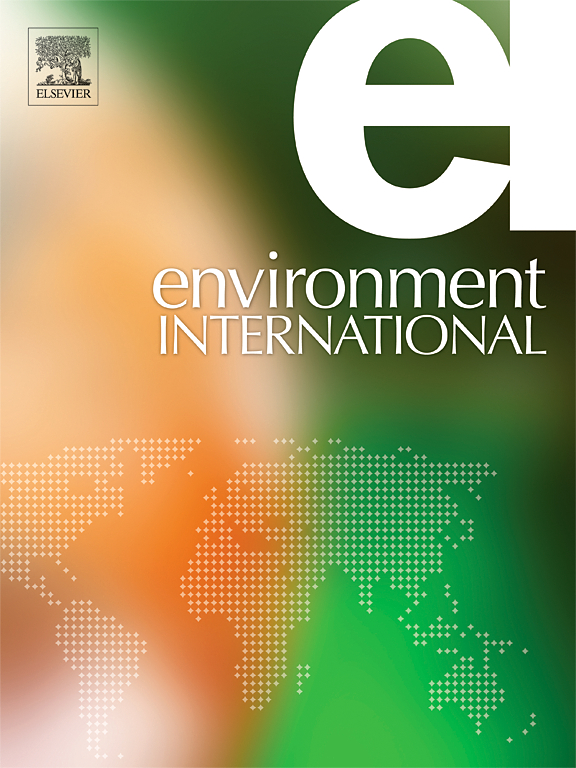New insights into car tire rubber particle toxicity: chemical composition and ecotoxicity assessment of leachate on gamete quality of the Mediterranean mussel Mytilus galloprovincialis
IF 9.7
1区 环境科学与生态学
Q1 ENVIRONMENTAL SCIENCES
引用次数: 0
Abstract
Thousands of tire rubber particles (TPs) enter the marine environment every year, contributing to microplastic pollution. The toxicity of TPs can be related to the particles themselves or chemical additives, which can leach into seawater and potentially affect marine organisms. The current study presents new insights into TPs’ impact on marine organisms’ reproductive processes. The leachates of end-of-life TPs and their adverse effects on gamete quality were evaluated by analysing the chemical compositions of seawater leachates and several gamete physiological parameters, taking the mussel Mytilus galloprovincialis as a model. Chemical analyses revealed the leaching of different metals, among which zinc showed the highest level (∼3 mg/L). Organic compounds such as antioxidants, vulcanising and protective agents were annotated in leachates and correlated with the observed harmful effects on the reproductive process. The exposure of oocytes and spermatozoa to TP leachates negatively affects the gamete quality by increasing the mitochondrial activity in both gamete types and decreasing the motility of spermatozoa, which may impair the reproductive success of mussels. Since reproductive success is a key factor in species survival, this study highlights the urgent need to extend the presented research to other marine organisms.


汽车轮胎橡胶颗粒毒性的新认识:渗滤液对地中海贻贝配子质量的化学成分和生态毒性评价
每年有成千上万的轮胎橡胶颗粒(TPs)进入海洋环境,造成微塑料污染。TPs的毒性可能与颗粒本身或化学添加剂有关,它们可以渗入海水并可能影响海洋生物。目前的研究为TPs对海洋生物繁殖过程的影响提供了新的见解。以贻贝(Mytilus galloprovincialis)为模型,通过分析海水渗滤液的化学成分和配子生理参数,评价了TPs报废渗滤液及其对配子质量的不利影响。化学分析显示浸出了不同的金属,其中锌含量最高(~ 3 mg/L)。在渗滤液中发现了抗氧化剂、硫化剂和保护剂等有机化合物,并与所观察到的对生殖过程的有害影响相关联。卵母细胞和精子暴露于TP渗滤液中,会增加两种配子的线粒体活性,降低精子的活动性,从而影响贻贝的繁殖成功率。由于繁殖成功是物种生存的关键因素,本研究指出迫切需要将本研究扩展到其他海洋生物。
本文章由计算机程序翻译,如有差异,请以英文原文为准。
求助全文
约1分钟内获得全文
求助全文
来源期刊

Environment International
环境科学-环境科学
CiteScore
21.90
自引率
3.40%
发文量
734
审稿时长
2.8 months
期刊介绍:
Environmental Health publishes manuscripts focusing on critical aspects of environmental and occupational medicine, including studies in toxicology and epidemiology, to illuminate the human health implications of exposure to environmental hazards. The journal adopts an open-access model and practices open peer review.
It caters to scientists and practitioners across all environmental science domains, directly or indirectly impacting human health and well-being. With a commitment to enhancing the prevention of environmentally-related health risks, Environmental Health serves as a public health journal for the community and scientists engaged in matters of public health significance concerning the environment.
 求助内容:
求助内容: 应助结果提醒方式:
应助结果提醒方式:


